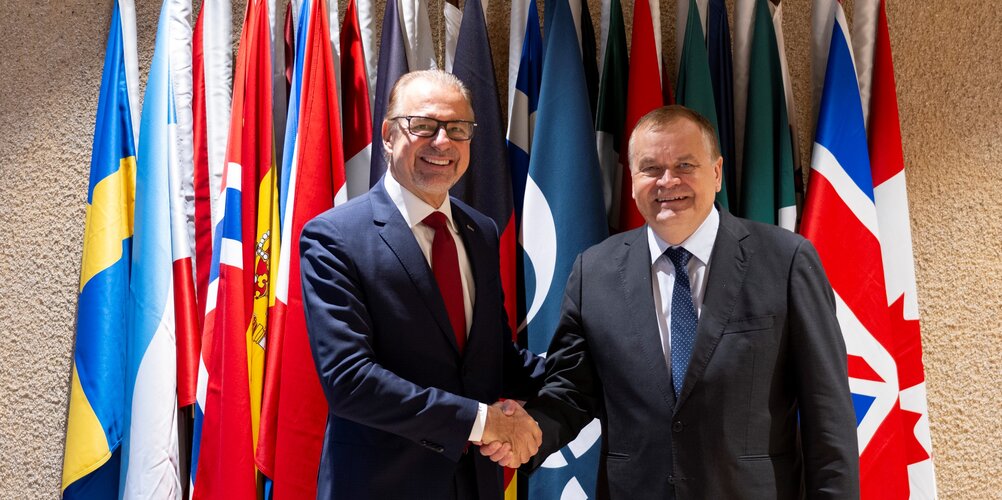The agreement envisages a constellation of satellites – supported by information-relaying infrastructure on the ground – that will be used by European governments and businesses to keep information secure and confidential.
Called “Iris2” – which stands for “Infrastructure for Resilience, Interconnectivity and Security by Satellite” – the system will promote digital autonomy and provide a strategic asset for the EU.
Under the 12-year agreement, ESA will work with space companies in the EU to develop and validate in orbit the Iris2 constellation, on behalf of the European Commission.
Iris2 will use advanced technologies to keep European information secure. The first satellites and their ground stations are expected to be operational by the end of 2027, based on a contract to be signed in 2024.
ESA and the EU have been close partners in European space for decades. ESA has designed and developed elements of the EU’s space programme including the Galileo system – with its 28-satellite constellation and its global ground stations – that together provide a highly accurate, guaranteed global positioning service under civilian control, as well as the fleet of EU Copernicus Earth observation satellites that deliver data to improve the management of the environment, understand and mitigate the effects of climate change, and ensure civil security. ESA also created the EU’s European satellite navigation system for aircraft.
Timo Pesonen of the Directorate General for Defence, Industry and Space at the European Commission said: “I welcome the signature of the contribution agreement with ESA. The Agency will play an instrumental role in supporting the Commission in developing and validating the Iris2 system. Connectivity is a major strategic challenge that will mark the next decades. Europe needs to act fast if it does not want to be left behind, and protect its digital sovereignty and societal resilience.”
Josef Aschbacher, ESA Director General, said: “Independent access to secure, space-enabled connectivity is essential for people in Europe to enjoy the immense but often unseen benefits that space brings to daily life on Earth. ESA is proud to cooperate closely with the European Commission to ensure that space enhances the lives of European citizens — and to foster a strong and resilient European space economy.”



